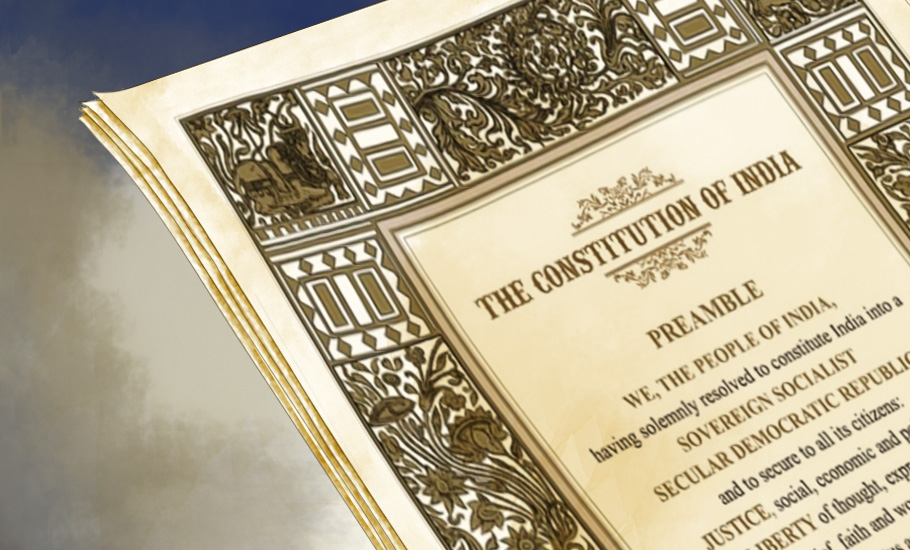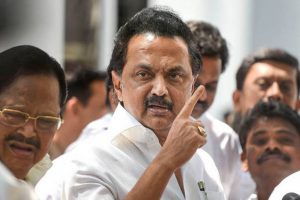
NEET: What Constitution says about role of Centre, States in education

Tamil Nadu recently adopted a Bill seeking to ‘dispense’ with the requirement for candidates to qualify in the National Eligibility-cum-Entrance Test (NEET) for admission to undergraduate medical courses in the state.
The ‘Tamil Nadu Admission to Undergraduate Medical Degree Courses Bill, 2021’, seeks to provide admission to medical courses on the basis of marks obtained in the qualifying examination (Class XII) through “normalisation methods”, as was the custom earlier.
The Bill was moved in the assembly by Chief Minister M K Stalin, who contended that admission to medical courses was traceable to Entry 25, List III, Schedule VII of the Constitution, and that the State was “competent to regulate” the same for underprivileged social groups.
The move came following the recommendations of the Justice A K Rajan Committee constituted by the Tamil Nadu government to study the impact of NEET on medical admissions in the state. The report said NEET has “clearly undermined” societal representation in MBBS and higher medical studies, favouring mainly the affluent segments of society.
If NEET is not scrapped, the report said, Tamil Nadu’s healthcare system will be “very badly affected, and there may not be enough doctors” to be posted at primary health centres or government hospitals, and the rural and urban poor may not be able to join medical courses.
The report further said that NEET “favours” the rich and the elite; that it hurts Tamil medium students, those with rural background; those from government schools; whose parents’ income is less than ₹2.5 lakh per year; and the Most Backward Classes, Scheduled Castes and Scheduled Tribes.

The report said immediate steps must be taken to eliminate NEET from being used in admission to medical programmes “at all levels”.
“It [NEET] festers inequality as it favours the rich and the more privileged class of society, who are able to afford special coaching apart from pursuing Class XII. It virtually barricades the underprivileged social groups from medical and dental education,” the Bill said. It argued that NEET was against the equality clause enshrined in the Constitution.
What the Constitution says
The Seventh Schedule of the Constitution of India contains three lists: The Union List (List I), the State List (List II) and the Concurrent List (List III).
According to Article 246, which demarcates the powers of the Union and the State, the Centre has exclusive powers to make laws on subjects in List 1, while States have exclusive powers to make laws on subjects in List II. Both Centre and States can enact laws listed under List III (Concurrent List).
According to Article 254, if there is a conflict between the laws, the Centre can override the State. However, Article 254(2) provides a way out for States in such a situation. It says that if there’s a central law and a state law on the same Concurrent List subject, and they have conflicting provisions, then the State law would have to be approved by the president.
The provision also states that even after the president’s approval, the Centre can still pass another law on the same subject and pass any law to amend, repeal or invalidate the state law.
The subject of education comes under the Concurrent List. But education was originally a State subject. During the Emergency (1975-1977), it was shifted to the Concurrent List through the 42nd constitutional amendment.
Entry 25 of List III (Concurrent List) reads: “Education, including technical education, medical education and universities, subject to the provisions of Entries 63, 64, 65 and 66 of List I; vocational and technical training of labour.”
While introducing the bill, Stalin referred to this entry. However, since it falls in the Concurrent List, under the provisions of Article 254(2) the bill would require presidential approval for it to become law.

However, there’s another entry that plays a role here. Entry 66 of List I (Union List), which includes: “Coordination and determination of standards in institutions for higher education or research and scientific and technical institutions.”
The National Medical Commission Act is traceable to this entry, which was cited by the Centre while challenging the Ranjan committee report. Additionally, the Supreme Court also held that Entry 66 of List I would prevail over the subjects covered by Entry 25 of List III. Therefore, this entry could be cited by the Centre to assert that states in fact do not have the power at all to make such a law excluding themselves from NEET, since NEET can be traced back to the Union List and not the concurrent list.
In 2017, the AIADMK government had made a similar attempt to exclude the State from NEET, sending two bills for presidential nod. But the Madras High Court was reportedly informed in 2019 that the president had rejected these bills.

